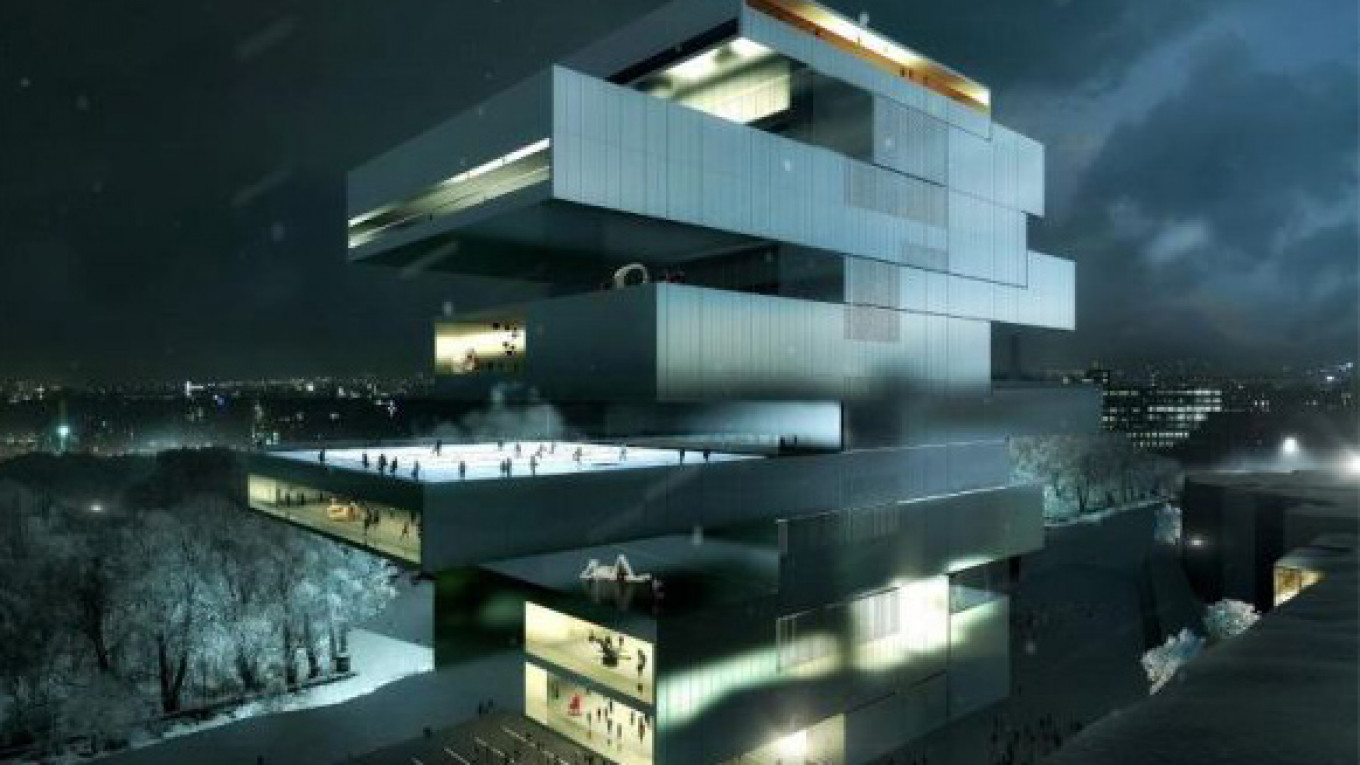The National Center for Contemporary Art, or NCCA, on Monday announced the long-awaited selection of the final plan for their new building at Khodynskoye Polye in Moscow, which will be designed by the Irish architectural firm Heneghan Peng Architects.
"The NCCA will be a vertical element in the center of Khodynskoye Polye, towering above the space where the airport once was," writes Heneghan Peng in their concept statement. The plan calls for a tall structure made up of oddly sized layers that will jut out from a central column.
Each level of the structure will hold a different exhibition space, devoted to different exhibits. "This will allow one to visit one specific gallery, or to view the whole collection as a whole," Heneghan Peng writes. The oddly sized layers will also create a number of open terraces, which will be used as green spaces.
Heneghan Peng won the final selection in a six-month-long contest that saw more than 900 applications.
The NCCA was founded in 1992 and has been located since that time on Zoologicheskaya Ulitsa in Moscow. In 2009, plans were announced to expand the museum on its current location, though it was later decided to construct a wholly new structure on Baumanskaya Ulitsa. For reasons that were not disclosed, the location was later switched to Khodynskoye Polye, and the international contest for the museum's design was announced by the Culture Ministry in 2012.
The new structure contain about 46,000 square meters, including about 10,000 square meters of permanent exhibition space and 5,000 meters for temporary exhibitions. Plans also call for a large hall capable of holding 800 people and two smaller auditoriums. The building is expected to be completed in 2018.
Contact the author at g.golubock@imedia.ru
A Message from The Moscow Times:
Dear readers,
We are facing unprecedented challenges. Russia's Prosecutor General's Office has designated The Moscow Times as an "undesirable" organization, criminalizing our work and putting our staff at risk of prosecution. This follows our earlier unjust labeling as a "foreign agent."
These actions are direct attempts to silence independent journalism in Russia. The authorities claim our work "discredits the decisions of the Russian leadership." We see things differently: we strive to provide accurate, unbiased reporting on Russia.
We, the journalists of The Moscow Times, refuse to be silenced. But to continue our work, we need your help.
Your support, no matter how small, makes a world of difference. If you can, please support us monthly starting from just $2. It's quick to set up, and every contribution makes a significant impact.
By supporting The Moscow Times, you're defending open, independent journalism in the face of repression. Thank you for standing with us.
Remind me later.






